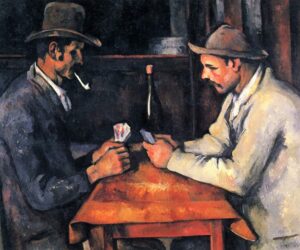What is poetry? And what is great poetry? What are some of the best poems in history? Today, we will talk about some of the most iconic poems in history. You should read these if you haven’t already. We will give you an idea of the meaning behind the poem. But you should and can interpret it in your own way.
The Road Not Taken by Robert Frost
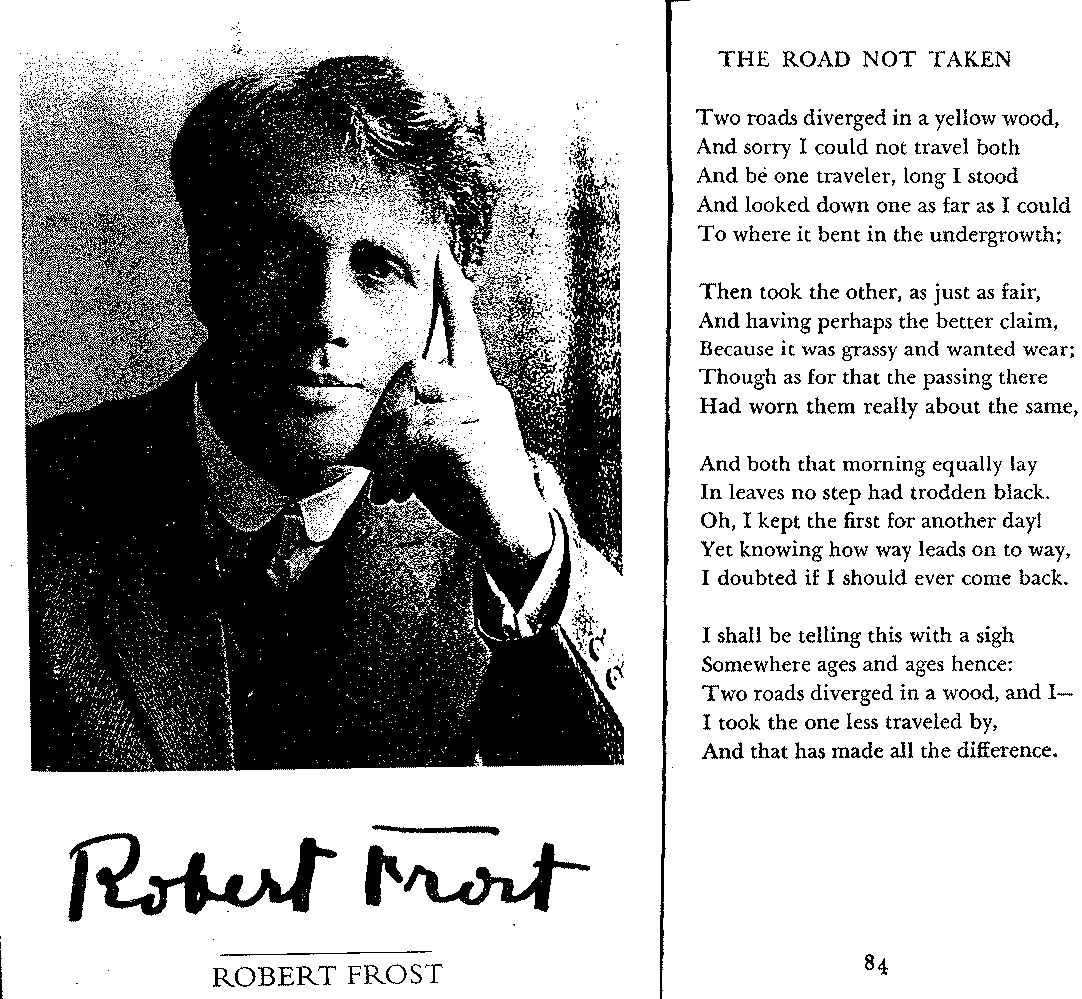
This poem deals with a philosophic question, How to make a difference in the world. And when you read it for the first time, you will instantly notice that the choice we make matters in the end.
But by the second and third reading, you will notice that the traveling narrator makes a choice long before and both roads end in the same way.
The poem tears apart the traditional view of individualism. It also takes a look at various constitutional freedoms, like freedom of religion, freedom of words, speech, press, and so on.
Reading the poem you notice that the narrator puts value on striving to make a difference.
One Art by Elizabeth Bishop
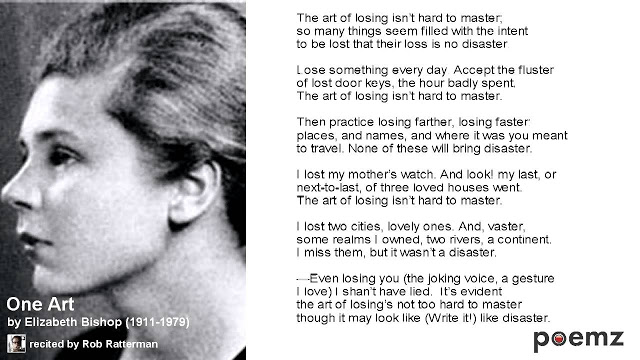
Loved and discussed, this poem is among the most controversial as well. In the poem, the author puts the topic on the theme of loss and the way we deal with it.
Bishop manages to make losing an art form. She explores how we can distance ourselves from the pain of loss.
Daffodils by William Wordsworth
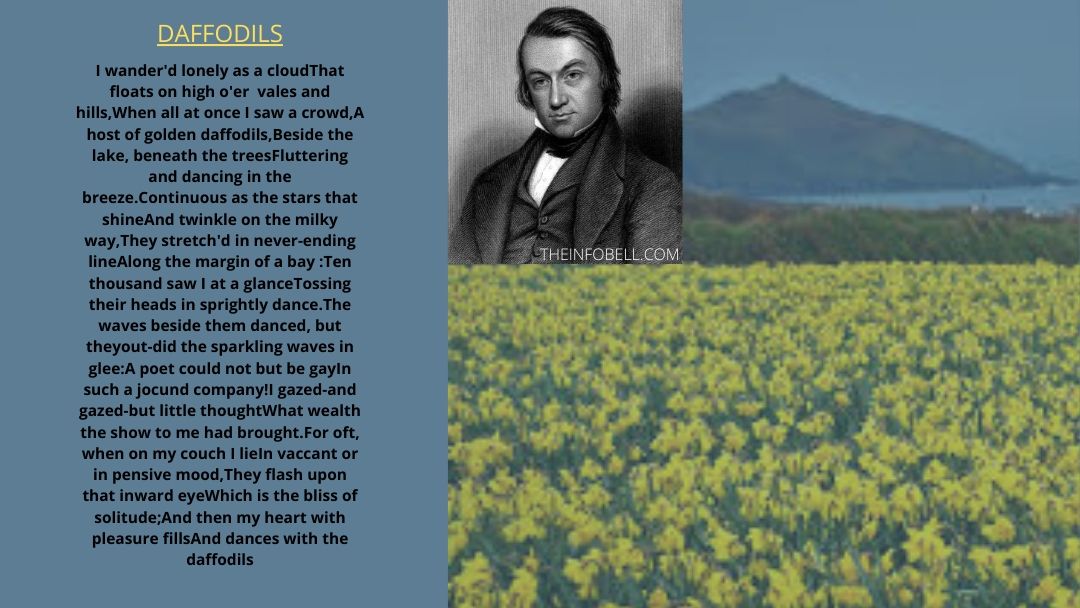
Not many authors can bring power and beauty in a simple way like William Wordsworth. William paints a beautiful picture of daffodils by the water. And he brings the beauty of the natural world to life.
This might sound simple, but read closely and you will find factors that contribute to the greatness of the poem. You have to look at the context of the poem. It came at a time when the Western World went through the industrialization period and men felt spiritually lonely.
In that context, daffodils in the poem serve a greater purpose. They are our companions and a source of personal joy.
But the biggest factor of greatness is the simplicity of enjoying nature.
No Man is an Island by John Donne
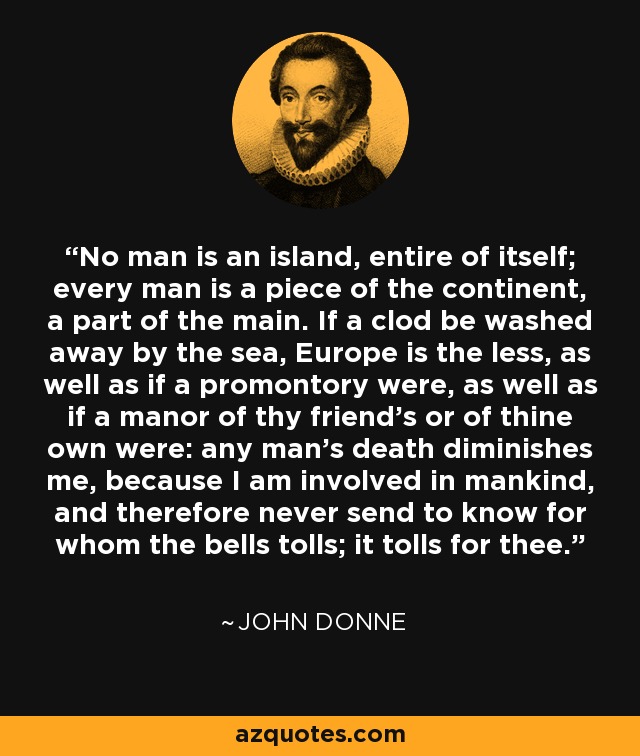
In this poem, the English poet compared people to countries. He argued for the interconnectedness of all people with God. The hashtag “nomanisanisland” trends and resonates today with people showing solidarity.
The phrase expresses the author’s idea that human beings do badly when isolated from others. We need to feel like part of a community in order to thrive.
John was a Christian. But other religions share that concept, for example, Buddhism.
Sonnet 18 by William Shakespeare
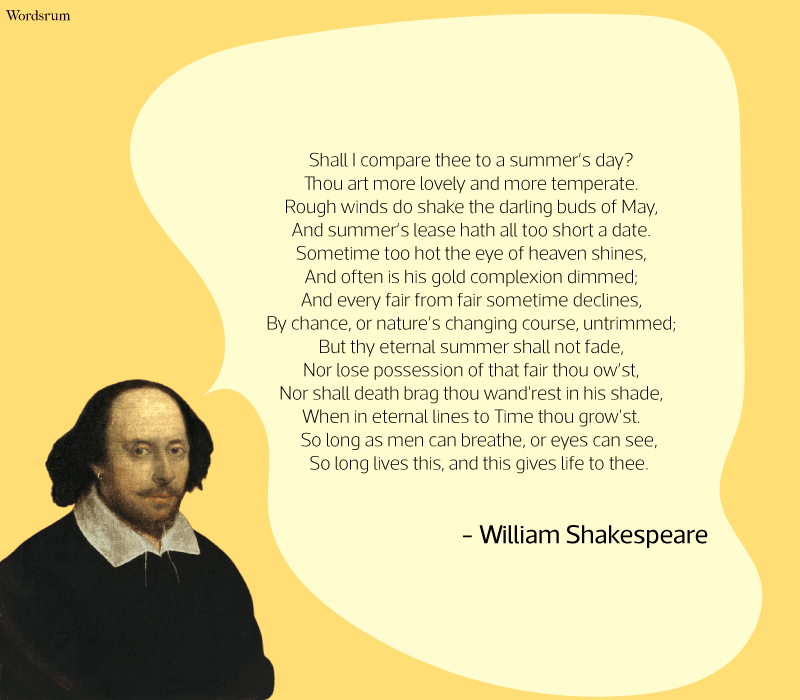
In this beautiful sonnet, the narrator tells someone that this person is better than a summer’s day. Unlike summer day that is too hot and too windy, that person is great. And unlike summer’s day that doesn’t last, it must fade away, the esteemed person does not lose beauty or fade away. The esteemed person remains preserved in the narrator’s own poetry.
With this poem, Shakespeare achieves greatness and puts his name on the top of the artistic hierarchy. The poem remains a must-read for educating, guiding, and leading others.
The poem gives us a simple way of approaching our relationships with other people. And by the end of the poem, William deals with the question of overcoming death, fear, and the decay of time.
Because I Could Not Stop For Death by Emily Dickinson

Dickinson has written many iconic poems. But this one ties them all together. It is the best stand-in for Emily’s famous poems.
The poem explores both the inevitability of death and the uncertainties that surround what happens when people die. In the poem, a woman takes a ride with a personified Death in his carriage.
The poem remains one of the most celebrated poems of all time. The ride with death takes the reader through different stages of life, before coming to its own grave.
A Psalm of Life by Henry Wadsworth Longfellow
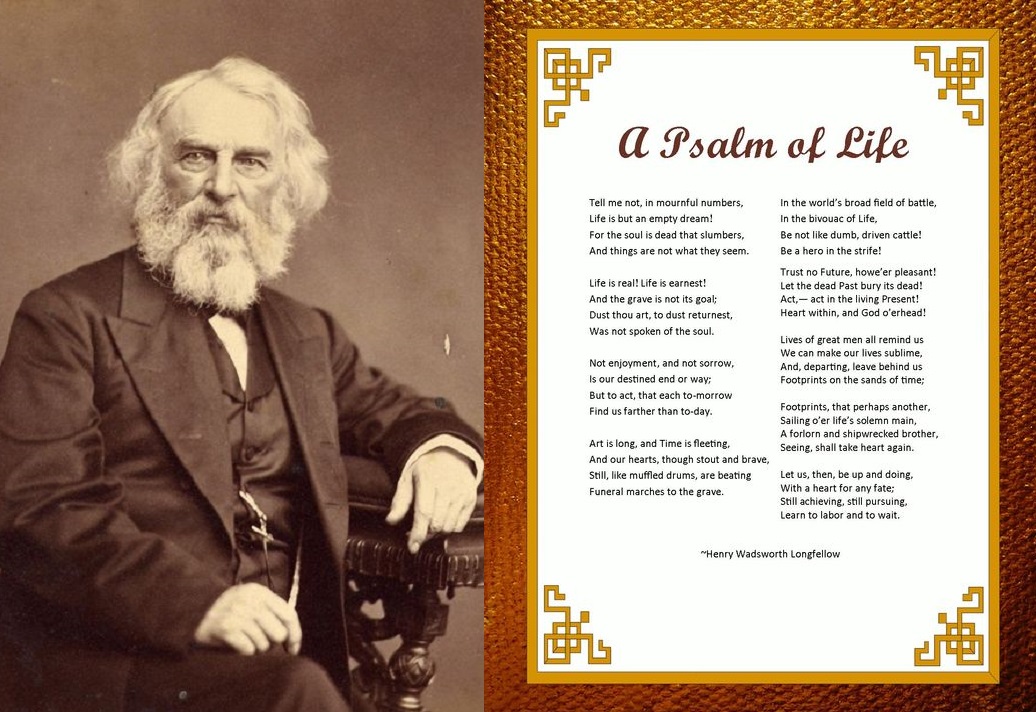
This nine-stanza poem might seem simple until you read the end. The first six stanzas look vague. Each one seems to begin with a new thought. But the emphasis in this poem is on a feeling rather than a rational train of thought.
The poem talks about the force of science that can restrain one’s spirit or soul. We must break free from it. The last three stanzas break free from science, and at this point, you can read the poem more smoothly.
The entire poem is a call to action to do great things, no matter how insignificant they appear to us.
The Tyger by William Blake
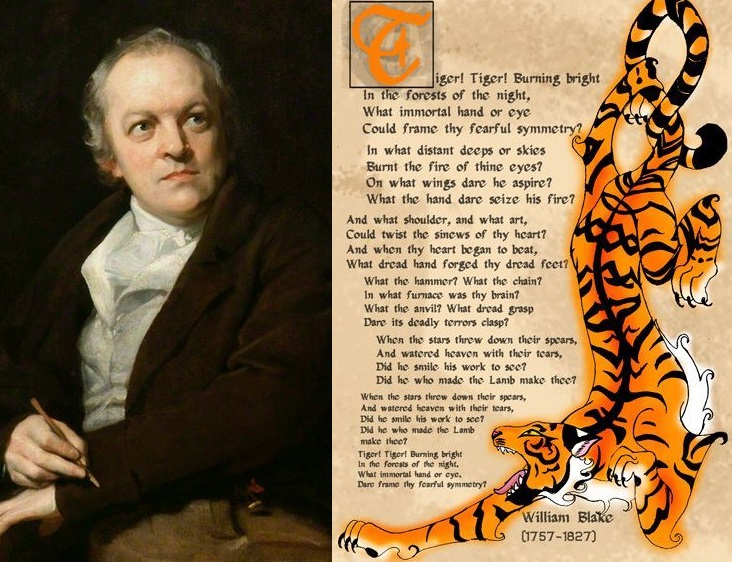
This poem talks about the question arising from the idea of creation by an intelligent creator. The author asks the following question, “If there is a loving, compassionate God or gods who created human beings and whose great powers exceed the comprehension of human beings, why would such a powerful being allow evil into the world”. It is a question we ask on a daily basis.
The tiger represents evil in this poem.
The Raven by Edgar Allan Poe
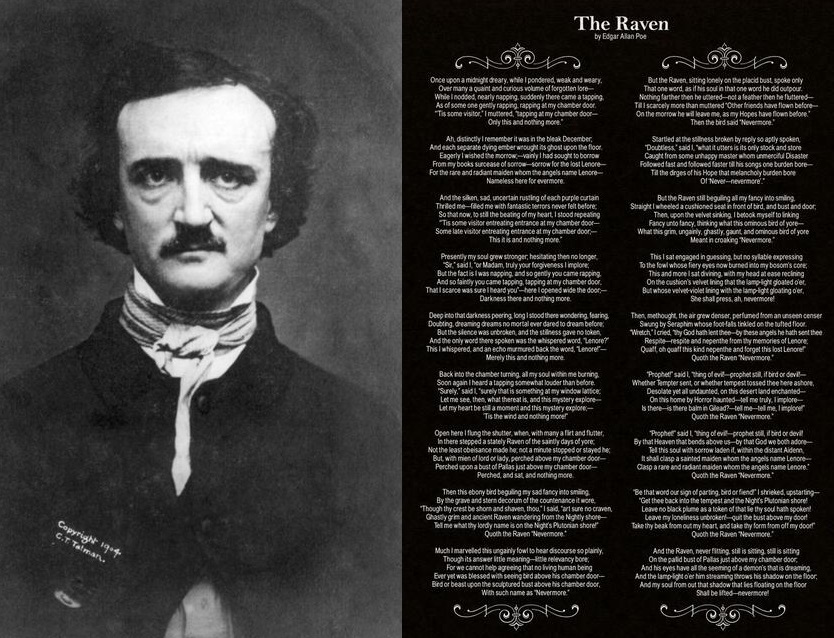
Published in January 1845, the poem earns praise for its musicality and stylized language. The whole poem delivers a supernatural atmosphere.
The poem talks of a talking raven and his mysterious visit to a distraught lover. It traces the man’s slow descent into madness.
Poe said he wrote the poem logically and methodically. He wanted to create a poem that would appeal to both critical and popular tastes.
By the end of the poem, the speaker realizes how fully cut off he is from the lover, spiritually and physically.
On His Blindness by John Milton

The poem deals with limitations and shortcomings in life. We’ve all had them. His own blindness is a perfect example of it.
Milton slowly lost his sight. At the age of 42, he was totally blind. The genius of the poem is in the way Milton transcends the misery he feels.



